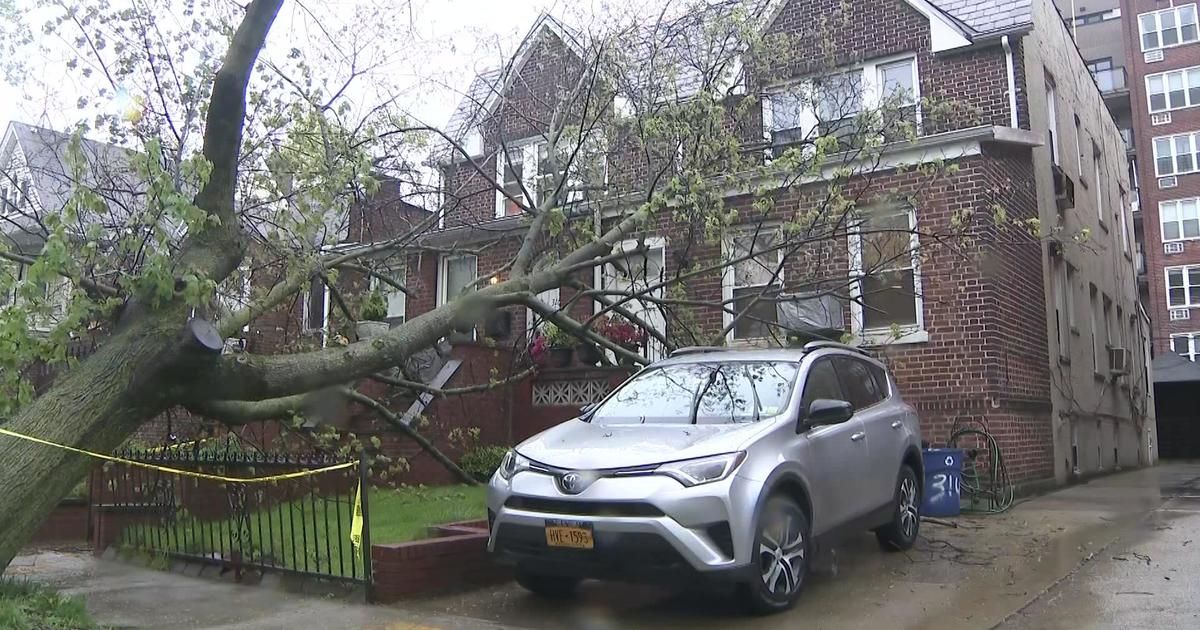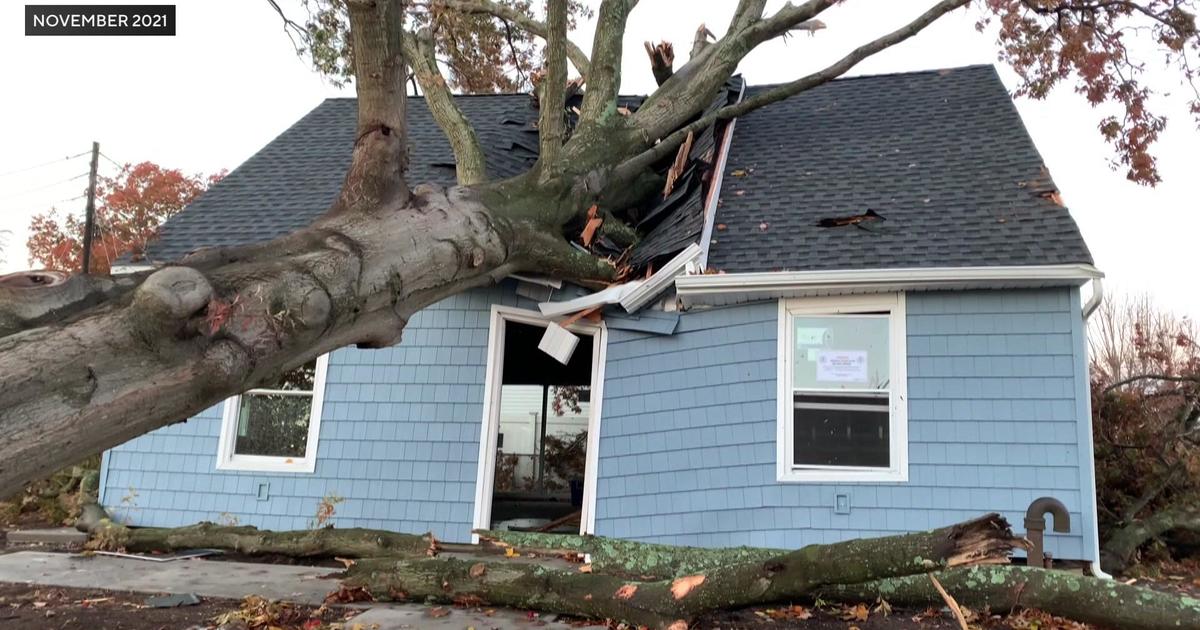New Jersey Group Tags Black Bear Cubs For Tracking
NEW JERSEY (CBSNewYork) -- It's that time of year when black bears start coming out of the woodwork, looking for food.
Keeping accurate count of New Jersey's black bears can take some time, especially with new moms and cubs hibernating a little longer than the rest.
CBS 2's Vanessa Murdock headed over to Vernon, N.J. to meet some of the newest members of the state's black bear population.
Murdock, however, wasn't just out in the woods to witness the beauty of nature. She was also there on a scientific mission with the Black Bear Project.
The group went out in search of bear cubs to tag and their protective mother had to be tranquilized before they could get close enough to the little ones.
"We try to predict what her next move's going to be but, she's usually really good at staying put," said Kelcey Burguess, biologist with Black Bear Project.
All four of the cubs found with the mama bear were injected with a microchip and tagged for tracking.
Each baby bear was also weighed. The smallest was just 4 pounds, the heaviest was more than 7.5 pounds, Murdock reported.
"In order to analyze and properly manage the population you really have to keep track of how many cubs are being born," Burguess said.
After the cubs have been tagged and weighed, they're returned to their den. In mid-April they'll emerge together and find a new home.
To make sure mom doesn't know the group was handling her cubs, Vicks VapoRub was put on her nose as she woke up, Murdock reported.
"She'll start licking her cubs and cleaning them and make sure they're OK. By the time the Vicks rubs off, she'll only smell her own scent on the cubs," explained Rich Boornazian, assistant commissioner for Natural and Historic Resources.
Other bears are emerging from hibernation already.
"They're getting hungry and that's what brings them out," Boornazian said.
Even though the winter weather has lingered, there's no worry about the bears going hungry.
"There's enough food out there they can start looking. Unfortunately New Jersey has an abundance of garbage and bird feeders," Boornazian said.
For now, the cubs get all the food they need from their mother.
Biologists will return to the den in a day or two to check on mom and her cubs.
About 70 cubs will be tagged this spring.
Check Out These Other Stories From CBSNewYork.com:



